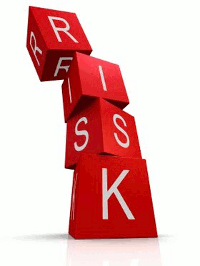
What kind of person you are “outside the charts” will help determine what kind of trader you will be “inside the charts”.
If you are of the first kind, “the wills”, you will overcome all the obstacles on your way to consistent success. You will accept, even embrace, uncertainty as the driving force behind the next big opportunity for gain. You will lose gracefully and move on to the next trade, knowing that trading is a game of probabilities and possibilities; not certainties and absolutes. You will leave money on the table, thankful for what you were able to gain; not bitter by what was left. If you are of the first kind you will succeed. You will indeed.
If you are of the second kind, “the won’ts”, you will look for the always elusive easy road to riches. You won’t believe in the effort required to become a disciplined trader, driven by solid habits repeated daily. You won’t apply the skill necessary for managing risk as that would require planning and preparation, something you just do not have time for. You won’t develop your own well defined trading edge, depending instead upon others to do it for you. If you are of the second kind your opposition to anything other than what is easy will make it quite difficult to succeed when times get tough, and they will but you won’t.
If you are of the third kind, “the can’ts”, you will blame everyone and everything for your failures. You can’t succeed because you are too busy finding fault in any trading strategy that produces a loss. You can’t succeed because anyone who does so has some special knowledge or gift that you obviously cannot possess. You can’t succeed because the market is rigged. If you are of the third kind…quit. You are a quitter with a quitter’s attitude. Be in the majority. Be a can’t. It’s easy.
So, what kind of person (trader) are you?

 Trading is an interesting field to say the least. It revolves around a great deal of decision making, and a lot of choices which will have diverse effects. What is responsible for the decisions made? Naturally, the trader’s thoughts and considerations in relation to his or her trading experience. So, to a certain extent neuroscience comes into the picture.
Trading is an interesting field to say the least. It revolves around a great deal of decision making, and a lot of choices which will have diverse effects. What is responsible for the decisions made? Naturally, the trader’s thoughts and considerations in relation to his or her trading experience. So, to a certain extent neuroscience comes into the picture.

 Ego: a person’s sense of self-esteem or self-importance.
Ego: a person’s sense of self-esteem or self-importance. Life is full of risks, and risks are all around you as a trader. In a perfect world there would be no risks and any decision you make will turn out to be the best one. You can hope for win after win, and not even have to worry about the prospect of losing. Yet this is an unrealistic and impossible scenario because as we all know trading is all about risk. However, there is no need to be afraid of risk. We need to accept the fact that it is there, and rather than focusing on fear we need to know how to deal with it and manage it.
Life is full of risks, and risks are all around you as a trader. In a perfect world there would be no risks and any decision you make will turn out to be the best one. You can hope for win after win, and not even have to worry about the prospect of losing. Yet this is an unrealistic and impossible scenario because as we all know trading is all about risk. However, there is no need to be afraid of risk. We need to accept the fact that it is there, and rather than focusing on fear we need to know how to deal with it and manage it.